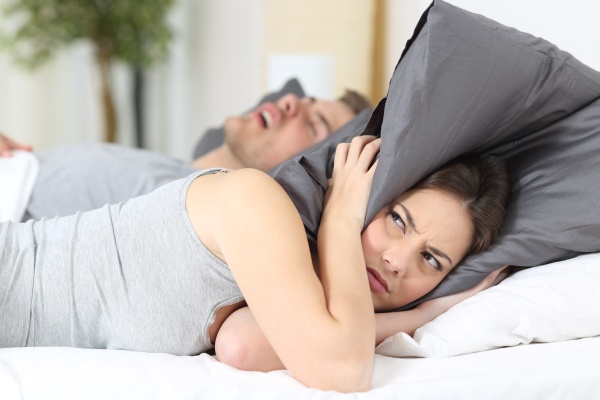What To Know Before Starting a Snoring Treatment

It is important for a snoring treatment to be implemented when dealing with sleep apnea, the sleep disorder that is commonly the source behind snoring. There are a variety of options available to manage the condition and get relief. It is necessary to know the details and facts about each option.
What is the first step to take?
The first step that needs to be taken is to make an appointment with a dentist for an evaluation. Sleep apnea, the disorder in which breathing is repeatedly interrupted for short periods of time while a patient is asleep, is often the cause of snoring. Dentists will frequently be the first ones to notice sleep apnea, and that is because it is known for causing dental problems such as receding gums, cavities and grinding of the teeth. A dentist will usually recommend a sleep study to confirm the diagnosis and can suggest what treatment option is the most suitable.
What snoring treatment options are available?
There are a variety of options available for treatment. Oral appliances and CPAP machines are the most frequently used treatments and are the most successful. Both are generally well tolerated and very effective to help treat sleep apnea and the symptoms associated with the condition.
What is there to know about oral appliances and CPAP machines?
Oral appliances are devices that are custom-created by a dentist to wear at night. These appliances are similar to a nightguard and work to keep the tongue and lower jaw pushed forward, therefore keeping the airway open. This treatment is an easy option that allows a patient to breathe comfortably and normally through the night.
Continuous positive airway pressure machines are another option. These devices use a nosepiece or mask to give a continual stream of air pressure to keep the airways open, and there a few different models available to choose from. It is the most common snoring treatment.
Do they have any cons?
Both devices can have some issues. The oral appliances can be a bit uncomfortable to wear, can cause an excessive production of saliva and can cause issues with the temporomandibular joint of the jaw. The appliances are also not as effective at treating more severe sleep apnea.
CPAP machines cause dry mouth and a stuffy nose and may also cause a claustrophobic feeling from the mask sitting on the face. Some people find that it is difficult to deal with the forced air pressure and it may feel uncomfortable. If a mask is not properly fitted, it can leak and cause sores or irritation of the skin.
Conclusion
There are many options available to help stop snoring that are successful. Both CPAP machines and oral appliances are effective snoring treatment options that can give relief. While these devices have their pros and cons, any associated issues are rare. The result is more restful sleep and improved quality of life. Snoring will quickly become a problem of the past.
Are you considering snoring treatment in the Port Charlotte area? Get more information at https://dragonflydentalportcharlotte.com.
Check out what others are saying about our services on Google: Read our Google reviews.
Related Posts
A cosmetic dentist offers a range of specialized services, including professional teeth whitening. Teeth whitening by an experienced dental professional often exceeds the effects of over-the-counter products. If you are currently seeking to enhance your smile, it is essential to understand the distinction between professional treatments and over-the-counter options. While each method has its advantages…
A confident smile begins with healthy, aesthetically pleasing teeth. For those experiencing issues such as gaps, chips, or uneven teeth, a cosmetic dentist can provide solutions to restore both appearance and function. Cosmetic dentistry offers a variety of minimally invasive procedures to correct aesthetic concerns and improve your overall oral health.Gaps between teeth, also known…
Cosmetic dentists take pride in enhancing the appearance of their patients' smiles. Since everyone has different treatment goals, finding the right dentist can take some time and research. Asking yourself a few simple questions can help you figure out what you need in a cosmetic dentist, streamlining your search.While all general dentists complete training to…
Aging affects every part of the body, including the look and health of the teeth. A cosmetic dentist can address the common dental challenges that come with aging teeth and gums. As people get older, their teeth may become discolored, worn, chipped, or misaligned. Gums can recede, become sensitive, or show signs of disease. Cosmetic…
